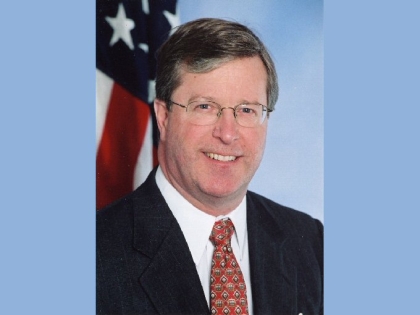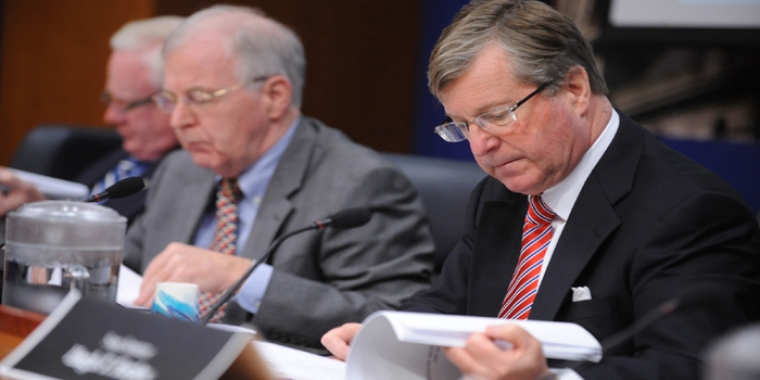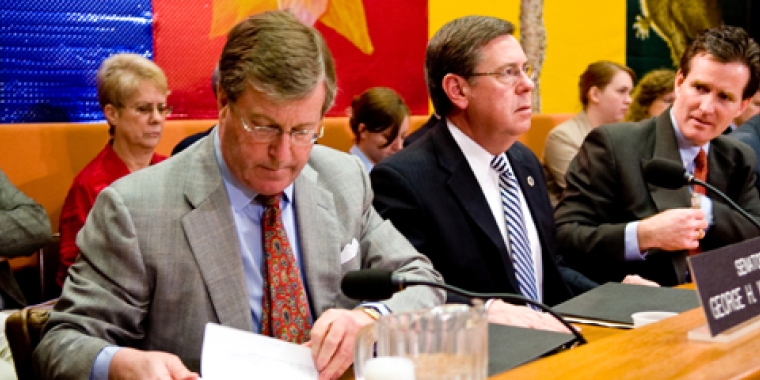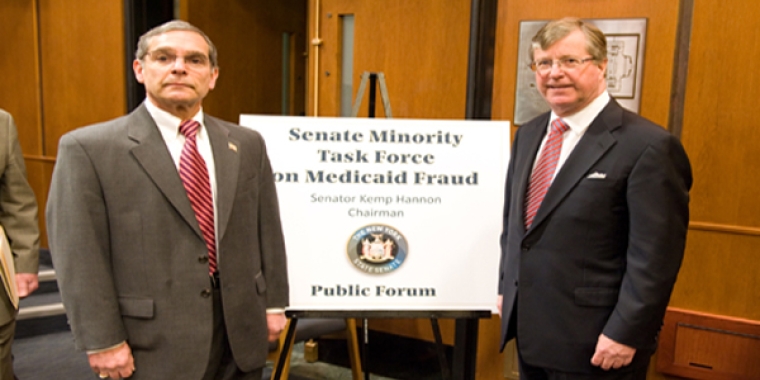
Legislature Acts To Reform Student Loan Industry

Albany, N.Y.– State Senator George H. Winner, Jr. (R-C, Elmira) said that the Legislature’sapproval ofthe "Student Lending, Accountability, Transparency and Enforcement (SLATE) Act of 2007," which isexpected to be signed into law, "will make New York State a national leader in seeking to protect students and their families from what’s been unveiled as a less-than-straightforward student loan industry."
Winner said that the legislation stems from an ongoing investigation by New York Attorney General Andrew M. Cuomo into conflicts of interest throughout the $85-billion-per-year student loan industry. The legislationapproved by the Legislature codifies a "College Loan Code of Conduct" which Cuomo has made the basis for case settlements with lenders and colleges in New York and nationally. The SLATE legislation has been been endorsed as a national model by congressional leaders.
"The attorney general’s investigation has taken on a life of its own, and that’s to the benefit of our students and families," said Winner, who praised the Cuomo investigation. "There should be only one guiding force throughout the student loan industry, and that’s the best possible future for the students and families they serve. There’s no room for mistrust or anything less than good faith. I’m proud to help New York point the way to a better, more responsible system."
The Student Lending, Accountability, Transparency and Enforcement Act:
> prohibits lenders from making gifts – including the practice of revenue sharing – to colleges and universities or their employees in exchange for any advantage in loan activities;
> bans colleges and universities from soliciting, accepting or receiving any gifts whatsoever – including those construed as part of a revenue sharing practice – from lenders in exchange for advantageous loan consideration;
> bars college and university employees from receiving any advantage, reimbursement or benefit from serving as a member of a lender’s advisory board;
> prohibits lender employees and agents from posing as college or university employees, including staffing the school’s financial aid offices with lender employees;
> bans lenders and schools from agreeing to certain quid-pro-quo high-risk loans that prejudice other borrowers or potential borrowers;
> prohibits schools from linking or directing potential borrowers to any electronic master promissory notes or other loan agreements that do not allow students to enter a lender code or name for any lender offering the relevant loan at that guarantee agency.
Furthermore, the law dictates strict criteria that schools continuing to use "preferred lender" practices must abide by.



